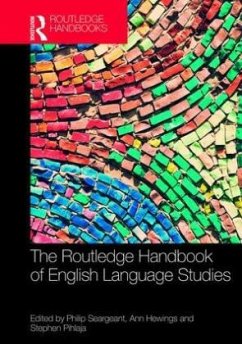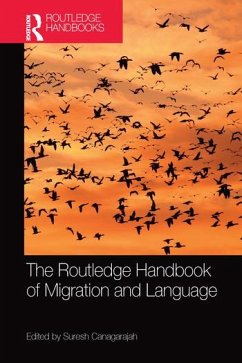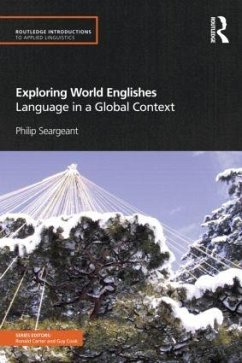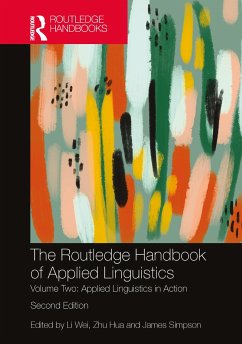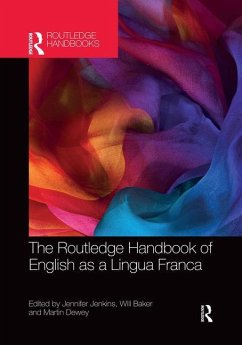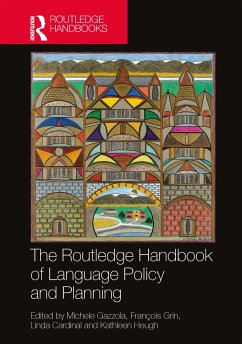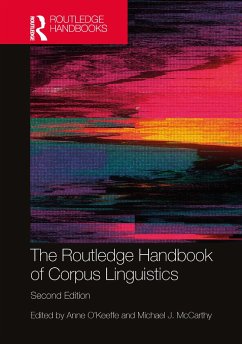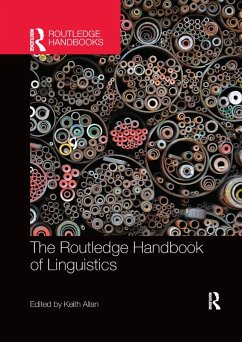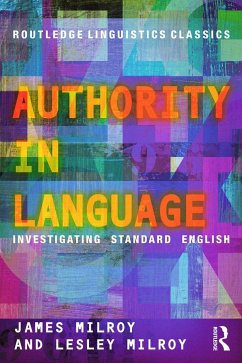
The Routledge Handbook of English Language Studies
Versandkostenfrei!
Versandfertig in 6-10 Tagen
50,99 €
inkl. MwSt.
Weitere Ausgaben:

PAYBACK Punkte
25 °P sammeln!
The Routledge Handbook of English Language Studies provides a comprehensive overview of English Language Studies. The book takes a three-pronged approach to examine what constitutes the phenomenon of the English language; why and in what contexts it is an important subject to study; and what the chief methodologies are that are used to study it. In 30 chapters written by leading scholars from around the world, this Handbook covers and critically examines:English Language Studies as a discipline that is changing and evolving in response to local and global pressures;definitions of English, incl...
The Routledge Handbook of English Language Studies provides a comprehensive overview of English Language Studies. The book takes a three-pronged approach to examine what constitutes the phenomenon of the English language; why and in what contexts it is an important subject to study; and what the chief methodologies are that are used to study it. In 30 chapters written by leading scholars from around the world, this Handbook covers and critically examines:
English Language Studies as a discipline that is changing and evolving in response to local and global pressures;
definitions of English, including world Englishes, contact Englishes, and historical and colonial perspectives;
the relevance of English in areas such as teaching, politics and the media;
analysis of English situated in wider linguistics contexts, including psycholinguistics, sociolinguistics and linguistic ethnography.
The Routledge Handbook of English Language Studies is essential reading for researchers and students working in fields related to the teaching and study of the English language in any context.
English Language Studies as a discipline that is changing and evolving in response to local and global pressures;
definitions of English, including world Englishes, contact Englishes, and historical and colonial perspectives;
the relevance of English in areas such as teaching, politics and the media;
analysis of English situated in wider linguistics contexts, including psycholinguistics, sociolinguistics and linguistic ethnography.
The Routledge Handbook of English Language Studies is essential reading for researchers and students working in fields related to the teaching and study of the English language in any context.





